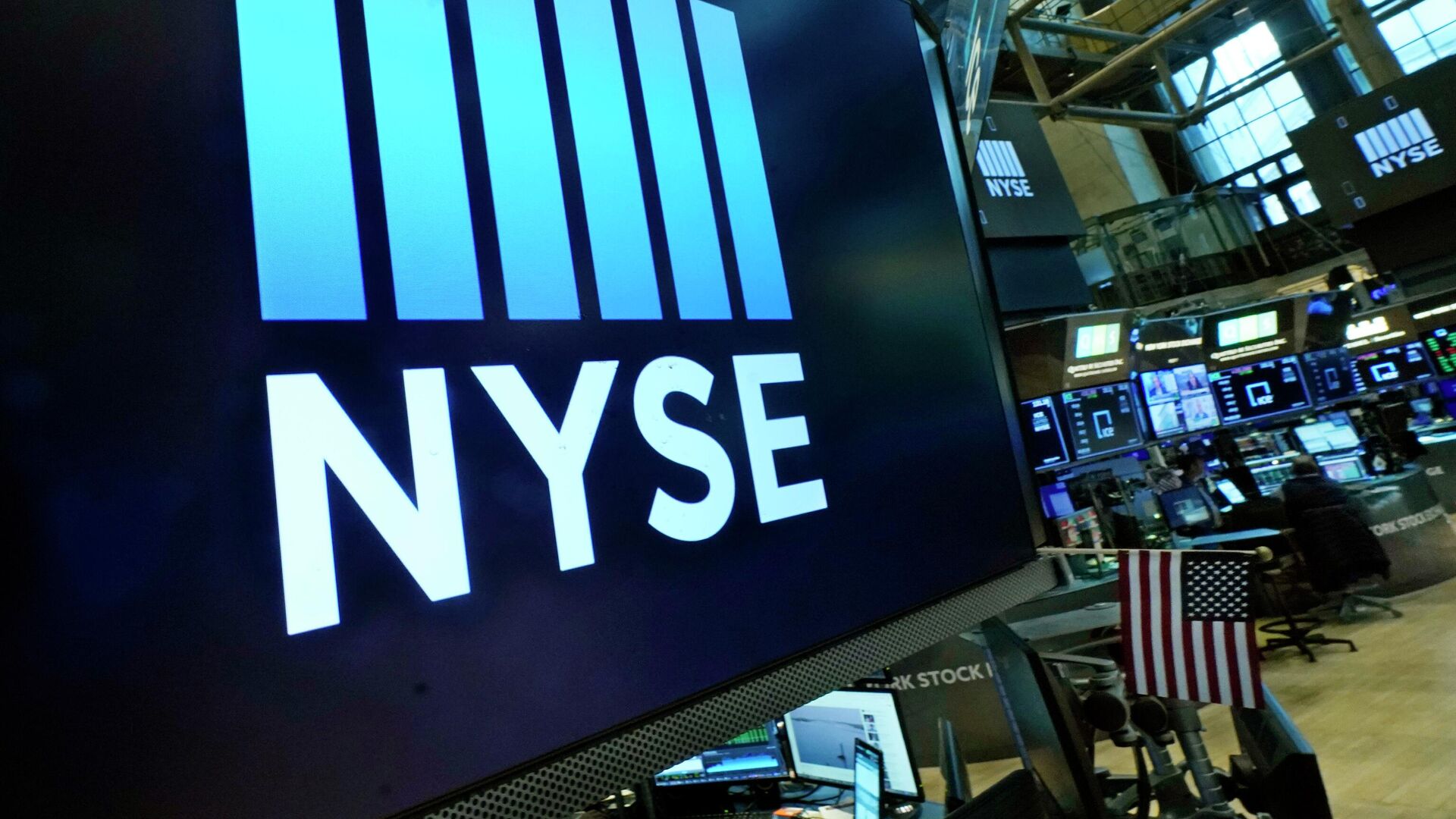https://sputnikglobe.com/20221219/us-stocks-in-red-for-4th-straight-day-as-holidays-beckon-recession-fears-mount-1105620822.html
US Stocks in Red for 4th Straight Day as Holidays Beckon, Recession Fears Mount
US Stocks in Red for 4th Straight Day as Holidays Beckon, Recession Fears Mount
Sputnik International
NEW YORK (Sputnik) - Wall Street’s three major indexes fell for a fourth day in a row as stock markets entered their penultimate week of the year with thin... 19.12.2022, Sputnik International
2022-12-19T21:19+0000
2022-12-19T21:19+0000
2022-12-19T21:15+0000
economy
wall street
us stocks
dow jones
s&p
nasdaq composite
recession
nyse
us
https://cdn1.img.sputnikglobe.com/img/07e6/04/07/1094570322_0:320:3073:2048_1920x0_80_0_0_0fdd38367a7f47d419ea61504f52aac6.jpg
With two hours to Monday’s settlement, the Dow Jones Industrial Average, which serves as Wall Street’s broadest equities indicator with stocks of 30 large US corporations, was down 162 points, or 0.49%, to trade at 32,757.The S&P 500 Index, which represents the top 500 US stocks, fell 34 points, or .90%, on the day to trade at 3,817. Last week, the S&P fell 2%, extending December’s loss to almost 7%. Year-to-date, it is down 20%, falling into bear-market territory. The Nasdaq Composite Index, which comprises marquee names in technology such as Amazon, Apple, Netflix, Google and others, fell 159 points, or 1.49%, to trade at 10,546. The Nasdaq fell 2.7% last week, extending its drop for the month to 8%. For the year, the Big Tech indicator fell 33% for the deepest bear market experienced by the three indexes. With just two weeks to the year’s close and most market participants having wound down position-taking, Monday’s sentiment in stocks wasn’t helped by signs that central banks planned to keep rate hikes relatively high in 2023 to beat inflation. In contrast to falling stock prices, US Treasury yields rose — a sign of investors ditching risk for bonds and other safe-haven instruments. In its bid to control inflation, the Fed has added 425 basis points to interest rates since March via seven hikes. Prior to that, interest rates were at a peak of just 25 basis points as the central bank cut rates to nearly zero after the global outbreak of the coronavirus pandemic in 2020. Inflation, as measured by the US Consumer Price Index, or CPI, expanded by 7.1% over the 12 months to November, versus a 7.7% in the year to October. Historical data showed it to be the lowest annual reading for inflation since December 2021. Even so, it was still three-and-a-half times higher than the Fed’s annual target of just 2% for inflation.
https://sputnikglobe.com/20221206/it-could-be-a-hurricane-jpmorgan-ceo-warns-inflation-could-drag-us-into-recession-in-2023-1105118232.html
wall street
Sputnik International
feedback@sputniknews.com
+74956456601
MIA „Rossiya Segodnya“
2022
Sputnik International
feedback@sputniknews.com
+74956456601
MIA „Rossiya Segodnya“
News
en_EN
Sputnik International
feedback@sputniknews.com
+74956456601
MIA „Rossiya Segodnya“
Sputnik International
feedback@sputniknews.com
+74956456601
MIA „Rossiya Segodnya“
wall street, us stocks, dow jones, s&p, nasdaq composite, recession, nyse, us
wall street, us stocks, dow jones, s&p, nasdaq composite, recession, nyse, us
US Stocks in Red for 4th Straight Day as Holidays Beckon, Recession Fears Mount
NEW YORK (Sputnik) - Wall Street’s three major indexes fell for a fourth day in a row as stock markets entered their penultimate week of the year with thin trading volumes amid growing fears of a recession in 2023.
With two hours to Monday’s settlement, the Dow Jones Industrial Average, which serves as Wall Street’s broadest equities indicator with stocks of 30 large US corporations, was down 162 points, or 0.49%, to trade at 32,757.
The S&P 500 Index, which represents the top 500 US stocks, fell 34 points, or .90%, on the day to trade at 3,817. Last week, the S&P fell 2%, extending December’s loss to almost 7%. Year-to-date, it is down 20%, falling into bear-market territory.
The Nasdaq Composite Index, which comprises marquee names in technology such as Amazon, Apple, Netflix, Google and others, fell 159 points, or 1.49%, to trade at 10,546. The Nasdaq fell 2.7% last week, extending its drop for the month to 8%. For the year, the Big Tech indicator fell 33% for the deepest bear market experienced by the three indexes.
With just two weeks to the year’s close and most market participants having wound down position-taking, Monday’s sentiment in stocks wasn’t helped by signs that central banks planned to keep rate hikes relatively high in 2023 to beat inflation. In contrast to falling stock prices, US Treasury yields rose — a sign of investors ditching risk for bonds and other safe-haven instruments.
"US stocks were unable to hold onto gains as recession worries run wild and as global bond yields surge higher [on] pushed-back expectations that the Fed will blink once the unemployment rate starts to climb higher," Ed Moya, analyst at online trading platform OANDA, said.
In its bid to control inflation, the Fed has added 425 basis points to interest rates since March via seven hikes. Prior to that, interest rates were at a peak of just 25 basis points as the central bank cut rates to nearly zero after the global outbreak of the coronavirus pandemic in 2020.

6 December 2022, 22:01 GMT
Inflation, as measured by the US Consumer Price Index, or CPI, expanded by 7.1% over the 12 months to November, versus a 7.7% in the year to October. Historical data showed it to be the lowest annual reading for inflation since December 2021. Even so, it was still three-and-a-half times higher than the Fed’s annual target of just 2% for inflation.



